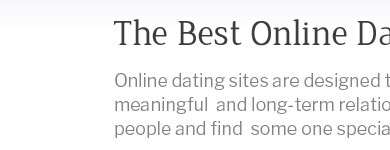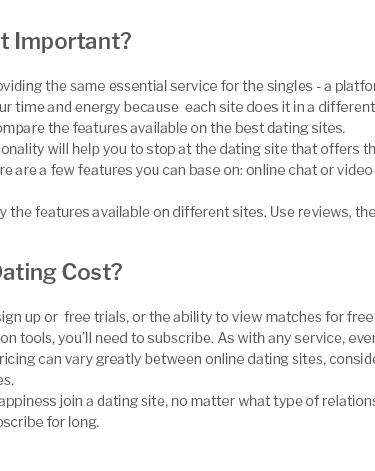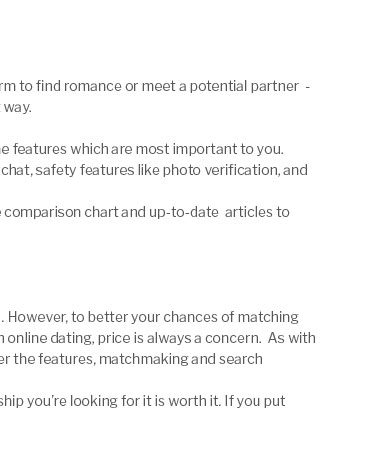internet prostitution sites overview and insightsWhat the phrase usually refers toThe phrase refers to online spaces where commercial sexual services are advertised, discussed, or arranged. These can include classified listings, escort directories, private forums, or messaging hubs. Discussions often distinguish between consensual adult sex work and exploitation or trafficking; conflating them can obscure real harms and hinder effective responses. Related terms and meanings- Escort directories: Listings that present profiles, rates, and contact methods for independent workers or agencies.
- General classifieds: Broad marketplaces where adult categories may appear alongside unrelated services.
- Dating platforms: Social or romantic matchmaking is distinct from commercial sex. For instance, a married women dating site facilitates personal connections, not advertising of sexual services.
- Coded communities: Forums or chat channels where euphemisms and abbreviations are used; interpretation without context is unreliable.
Legal and ethical landscapeLaws differ across regions. What is permitted in one place may be restricted elsewhere. Platform policies can be stricter than local law, removing or moderating adult content to reduce risk and comply with financial or hosting rules. Key considerations- Consent and agency: Content and arrangements must involve willing adults; anything else is abuse.
- Exploitation indicators: Third-party control, debt bondage claims, or confiscated documents are danger signs.
- Advertising rules: Many services prohibit adult solicitation; violations can trigger takedowns or account bans.
- Payment and fraud: Scams target both viewers and advertisers through chargebacks, phishing, or fake verifications.
- Privacy: Doxing and harassment risks rise when personal data is exposed.
Risks, harms, and digital safetyListings and communications can mask coercion, identity theft, malware, or financial fraud. Researchers, moderators, journalists, and harm-reduction advocates emphasize caution and the need to avoid contacting individuals or downloading untrusted files. Common online red flags- Requests for upfront payment via irreversible methods.
- Profiles that recycle the same photos, text, or contact details across many locations.
- Language hinting at third-party control, quotas, or restrictions on movement.
- Links that redirect through multiple URL shorteners or prompt unexpected downloads.
- Demands for government IDs, selfies with documents, or full address details.
Privacy and security basics- Avoid sharing sensitive identifiers or exact home locations.
- Use platform reporting tools when encountering suspected exploitation or nonconsensual content.
- Rely on official law-enforcement channels to report credible harm.
- For research or analysis, prefer open-source methods and remove personal identifiers from notes.
If someone is in danger, contact local emergency services. How content and listings typically appearProfiles usually present photos, brief descriptions, approximate locations, and contact options. Some use euphemisms for services, time blocks, or boundaries. Stock imagery, mismatched metadata, or identical bios across many profiles can indicate low-quality or deceptive listings. Patterns sometimes seen- Heavily edited or watermarked photos that trace back to unrelated websites.
- Copy-paste descriptions with minimal personalization.
- Third-party phone numbers or messaging IDs managed by schedulers.
- Price mentions replaced with emojis or abbreviations to evade filters.
Research and media coverage tipsQuestions to ask- Who controls the platform and how are safety reports handled?
- What moderation and verification steps are described publicly?
- Which payment or advertising partners influence allowed content?
- Are there published policies for removing abusive or nonconsensual material?
Ethical research practices- Avoid direct outreach to individuals represented in listings.
- Do not store or share identifiable images; blur or redact when necessary.
- Consult subject-matter experts and survivor-led organizations for context.
- Frame findings carefully to avoid stigmatizing consensual adult workers or mislabeling exploitation.
Alternatives, support, and community resourcesPeople seeking romance or companionship can use mainstream social or dating platforms designed for relationships, such as communities akin to married women seeking men, which focus on personal connections rather than commercial exchange. - Digital rights groups offer guidance on privacy and data minimization.
- Anti-trafficking hotlines and NGOs provide confidential support.
- Legal aid clinics help with platform disputes and defamation concerns.
- Community health services can advise on safety and well-being.
Short takeawaysNot all adult-oriented sites involve commercial sex, and not all commercial listings are consensual. Clear policies, reporting tools, and privacy protection are essential for safety. FAQWhat are internet prostitution sites?They are online spaces where commercial sexual services are advertised or coordinated, ranging from specialized directories to informal classifieds and chat channels. The term is broad and often debated, so context and precise definitions matter. Are these sites legal?Legality depends on the jurisdiction and on the specific activity involved. Some places regulate advertising, others restrict buying, selling, or brokering. Platform rules and financial partner policies can be stricter than local law. This is not legal advice; consult qualified counsel for guidance relevant to your location. How can someone recognize signs of exploitation?Warning signs include third-party control over communications, references to quotas or penalties, inconsistent or recycled photos, requests for irreversible payments, and claims that suggest restricted movement or withheld documents. Suspicion of harm should be reported to appropriate authorities or hotlines. How do dating platforms differ from prostitution-oriented platforms?Dating platforms center on social or romantic matching without commercial exchange for sexual services. Their policies usually prohibit solicitation, escorting ads, or third-party brokering, and violations can lead to removals or bans. Is visiting a site the same as committing a crime?Simply viewing a webpage is distinct from purchasing or facilitating illegal services, but laws vary and some content itself may be unlawful. Accessing, downloading, or interacting with prohibited material can carry legal risk. When in doubt, seek legal advice and avoid engaging. What do responsible platforms do to reduce harm?They publish clear rules, use human and automated moderation, verify ages where lawful and feasible, provide reporting tools, cooperate with lawful investigations, remove nonconsensual or abusive content, and link to support resources.
https://en.wikipedia.org/wiki/Backpage
Backpage was a classified advertising website that had become the largest marketplace for ... Its CEO, Carl Ferrer, pleaded guilty to charges of facilitating prostitution and money ... A study conducted one year after Backpage was shut down found that the website had owned a virtual monopoly on Internet prostitution.

|




















